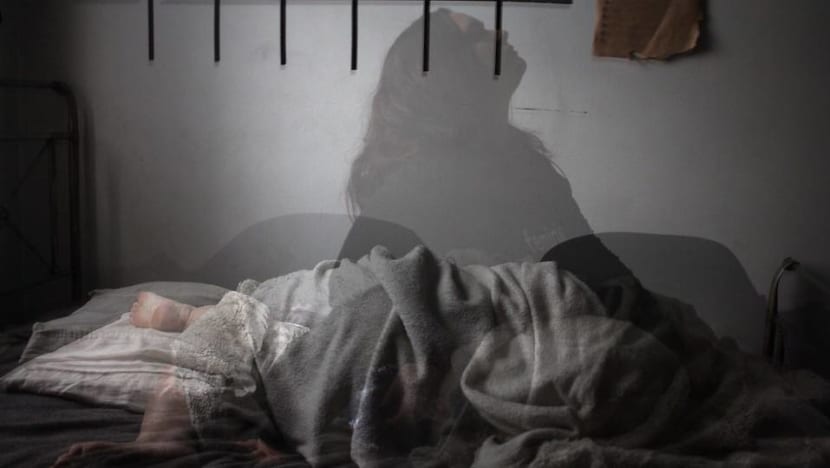Task force on family violence moots better protection for victims, rehabilitation for perpetrators

Some are feeling the impact of abuse especially keenly now. (Photo credit: Unsplash)
SINGAPORE: A task force on family violence has put forward several recommendations, including tougher regulations and support for survivors of family violence, while emphasising that perpetrators also need help and rehabilitation.
The Taskforce on Family Violence was set up in February last year to better understand the family violence landscape in Singapore, identify areas for improvement and make recommendations to tackle the issue.
Its report, released on Thursday (Sep 23), included 16 proposals grouped under four thrusts – to increase awareness and enhance prevention for persons at risk; to make it easier for survivors and the community to report family violence and get immediate help; to strengthen protection and support for survivors; and to increase the accountability of perpetrators and strengthen their rehabilitation.
According to figures in the report, the prevalence rate of family violence in the community in Singapore is between 3 and 20 per cent, lower than in Southeast Asia (37.7 per cent) and globally (30 per cent). Still, “every case is one too many”, said the Ministry of Social and Family Development (MSF) and the Ministry of Home Affairs (MHA) in a joint press release.
The report also included detailed results of studies conducted to improve understanding of family violence in Singapore.
There has been a steady increase in the number of enquiries and new cases on family violence received by social service centres for family violence, the ministries said.
There were 1,103 new cases taken up in FY2020 by family violence specialist centres and the PAVE Integrated Service for Individual and Family Protection Specialist Centre. This is an increase from 966 in FY2019 and 891 in FY2018, according to the report.
The number of inquiries also increased from 2,906 in 2018 to 4,574 in the last financial year.
This could have been the result of greater public awareness, but the situation was also made worse by the stressors brought about by COVID-19 pandemic, said MSF and MHA.
DESIRE FOR QUICK RESPONSE
“In our interactions with survivors of family violence, one thing that came up was the survivors’ desire for quick response, (for) immediate help to be given to them when they report cases of family violence,” said task force co-chair Sun Xueling, who is the Minister of State for Social and Family Development, and for Education.
To achieve this, one of the recommendations was to improve the triaging of cases by frontline responders, and introducing emergency social service interventions.
“We think that there is an opportunity for social workers to work with the police in a collaborative manner to assess whether or not the offence is something that requires the immediate removal of the offender,” said Ms Sun.
The task force also recommended enhancing training for the police to better address the needs of survivors and perpetrators of family violence and to improve the care rendered by police officers to victims.
Another proposal was to expand the modes of reporting for the national anti-violence helpline such as tapping on Internet live chat and messaging applications.
Ms Sun noted that what was new in this set of recommendations were proposals to explore stronger rehabilitative efforts for the perpetrators, which may include providing shelter for them.
“For some of them who might have certain mental health conditions, or have other underlying issues, there may be a need for a more structured programme for them, as opposed to just providing a transitional place of stay. But this is quite a new concept that we're talking about and it requires further discussion,” she said.
GOVERNMENT TO STUDY RECOMMENDATIONS
On personal protection orders (PPOs), the task force suggested amending the Women’s Charter to increase penalties for the breach of PPOs and to grant powers to some third parties to apply for PPOs on behalf of vulnerable persons experiencing family violence.
Dr Sudha Nair, the executive director of PAVE, said that some examples of survivors who may not want to apply for PPOs despite being in danger are people with “Stockholm syndrome”, who are under the thrall of their abusers, or elderly parents who are unwilling to report their children.
While the numbers are small, it may be necessary to intervene if the victims’ lives are in peril, she said.
Assoc Prof Muhammad Faishal Ibrahim, co-chair of the task force, said that the recommendations addressed key areas and gaps which need to be strengthened and addressed.
“We must now turn our attention to ensuring that the recommendations are implemented well, to ensure a safer and stronger Singapore for all.”
Assoc Prof Faishal and Ms Sun have submitted the recommendations to the Government on the task force’s behalf.
“The Government will study these recommendations carefully in the coming weeks, and will share its response to the report thereafter,” said Minister for Social and Family Development Masagos Zulkifli














